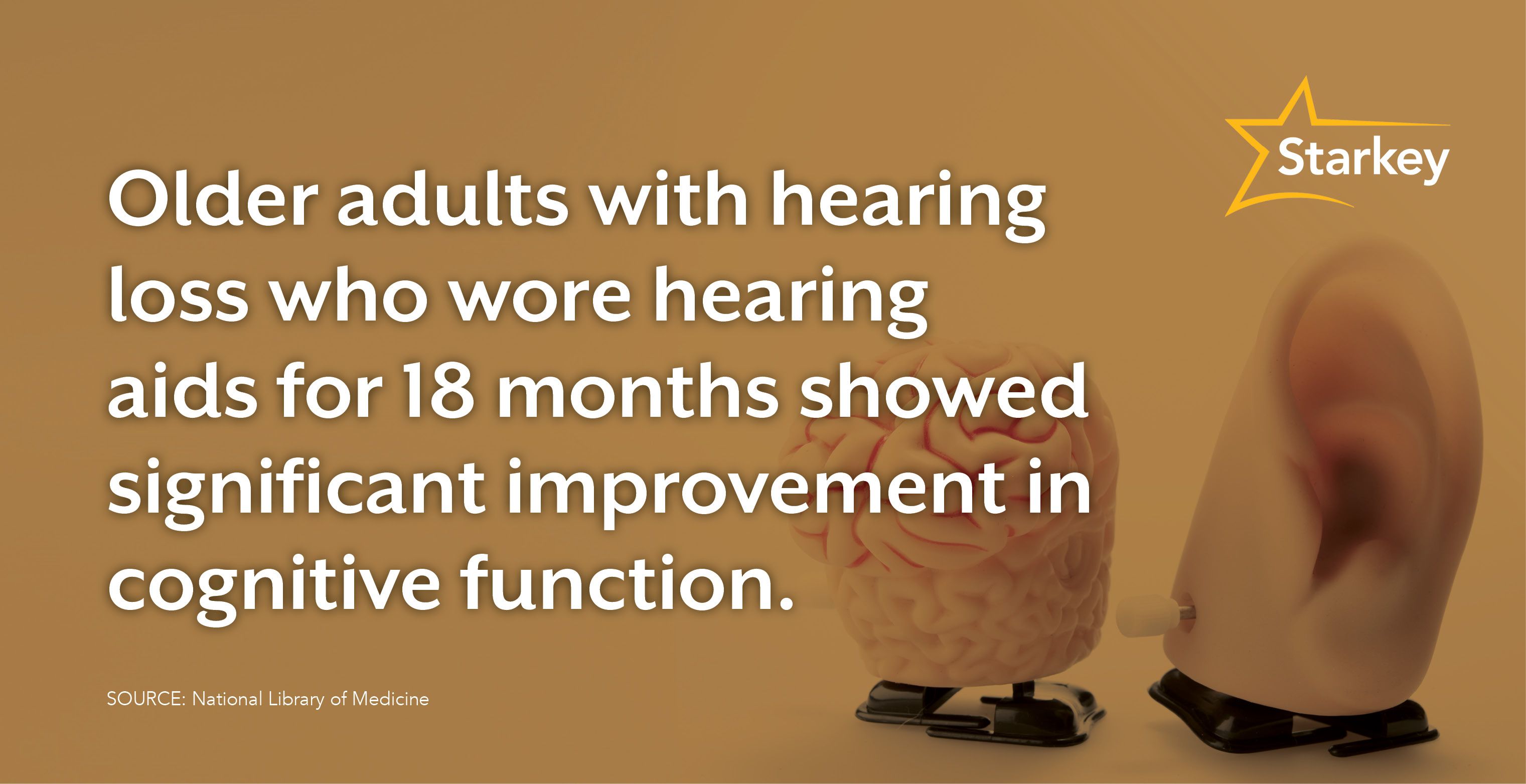If you’ve been joining Starkey in staying on the pulse of the latest hearing loss research, you’re probably aware of the direct correlation between hearing health and brain health. You may understand that treating your hearing loss now instead of down the track has been proven to reduce your risk of cognitive decline—by nearly half. In fact, hearing loss has been named the number one modifiable risk factor found to prevent dementia.
If you thought those statistics were positive, today’s hearing fact takes “encouraging” to an exciting new level: Wearing hearing aids consistently for hearing loss has the potential to not only help us hear better—but also think better, learn better, remember better, and reason better than before.
This hopeful news emerged from a recent international study led by researchers from Australia and Switzerland. Let’s take a look at this research and some of the key outcomes.
New hearing aid wearers assessed after 18 months
Researchers examined first-time hearing aid wearers aged 62–82 before they were fitted for hearing aids and after they had worn the devices for 18 months. The following factors were reviewed during each time period: hearing, cognitive function, speech perception, quality of life, physical activity, loneliness, isolation, mood, and medical health.
The results:
Eighteen months after participants began wearing hearing aids for the first time—
- Participants’ “speech perception in quiet, self-reported listening disability, and quality of life had significantly improved.”
- When it came to the cognitive tests administered, the group mean scores showed “no significant decline.”
- Participants’ executive function—or skills used to accomplish everyday tasks such as solving problems, managing emotions, and making plans—“significantly improved.”
The researchers unsurprisingly concluded the study on an uplifting note, suggesting that early detection and management of hearing loss could help people live to a greater age without dementia.
And given that people are living longer, it’s heartening to imagine the possibility of maintained well-being and improved quality of life further into the future than we initially thought possible—simply by treating our hearing loss.

Hearing aids can help hearing and cognition as we age
This study is just one of many that prove how important it is to prioritize our hearing health-brain health connection as we grow older.
After all, the connections we lose through untreated hearing loss can have a detrimental effect on cognition: When we have difficulty hearing and communicating, we risk withdrawing from the people, the activities, or even the work we enjoy: A current Mayo Clinic article reminds us how damaging isolation is to both our cognition and brain health—after all, we “can’t remember what we can’t hear.”
We should also consider how crucial those executive function skills (which consistent hearing aid use was shown to “significantly improve”) really are to our independence and quality of life:
- Making plans
Being able to make plans, whether it’s an appointment to volunteer or an outing with a friend, gives us a sense of purpose and adds more meaning to our lives.
- Managing our emotions
The ability to govern our emotions is an invaluable function, particularly when it comes to doing things like making decisions and communicating effectively within our relationships with others—family, friends, colleagues, and so on.
- Solving problems
Where do we even begin on the importance of being able to solve problems in daily life? The benefits range from helping us handle pressure and resolve conflict to fostering better decision-making and resilience.
As today’s fact shows, we can strengthen all of these as we age—with the help of better hearing.
Don’t wait to treat hearing loss—the best is yet to come
If you think you may have hearing loss or it’s been a while since your last hearing test (experts recommend having your hearing screened every three years once you’re 50), remember that it’s never too late to schedule an appointment with a licensed hearing care professional. They have the expertise to evaluate your hearing, counsel you through any hearing issues, and walk you through your options if needed.
If hearing aids are recommended, you’re in great hands: Today’s sleek, innovative hearing aids are designed to help you hear the same way your brain does. Pair them with a hearing aid app, and you can even support your brain health by tracking your social engagement and time spent actively listening. The list goes on.
Don’t miss out on better hearing, greater living, and every unforgettable moment in between. Make an appointment with a hearing care professional near you today.

